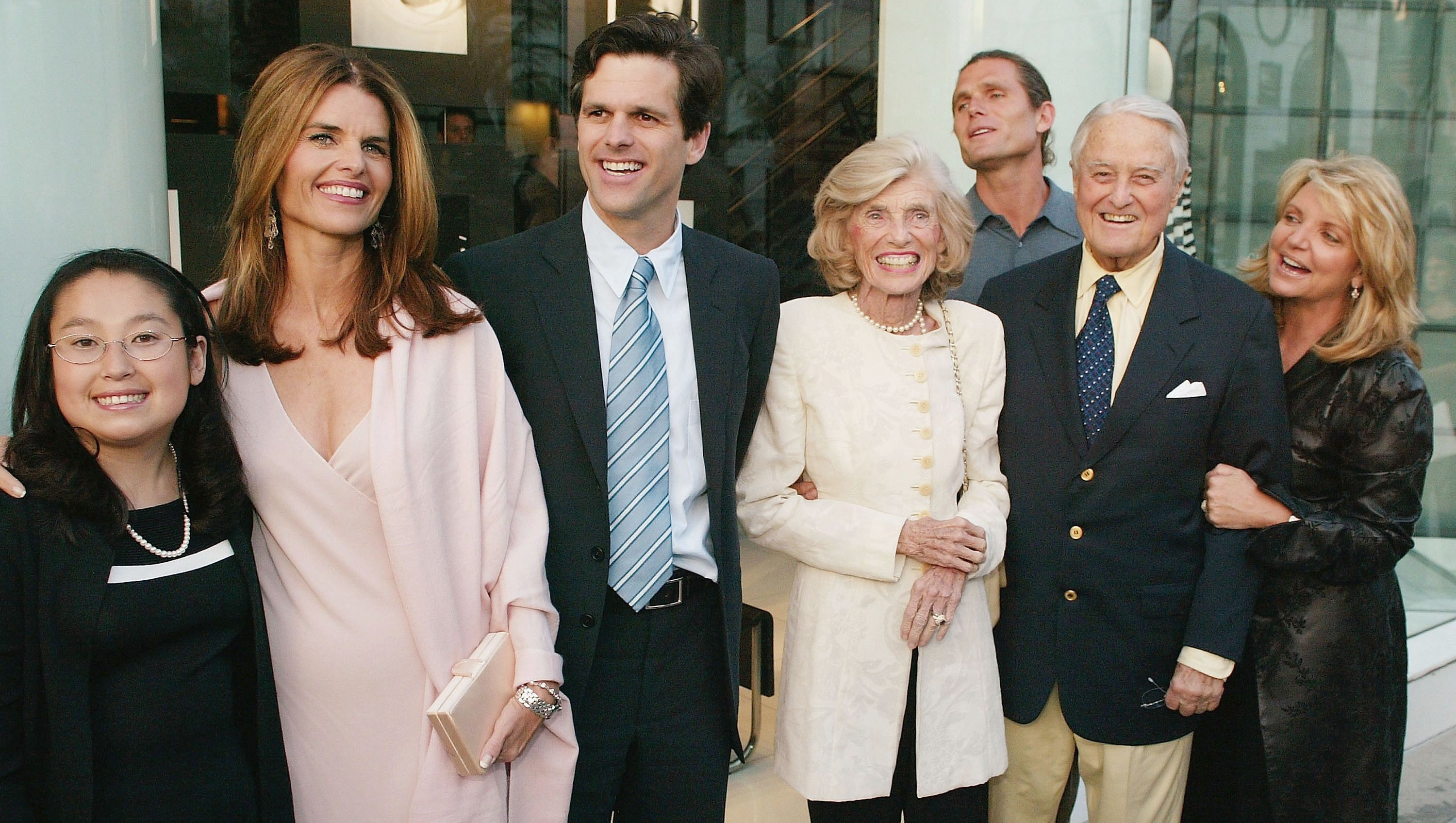Eunice Kennedy Shriver's Grandchildren & Special Olympics Legacy
What defines a legacy? Is it etched in stone monuments or whispered in hushed tones of reverence? For Eunice Kennedy Shriver, it's the vibrant, joyful shouts of athletes competing in the Special Olympics, a testament to her unwavering belief in the power of inclusion. Her legacy is not just remembered; it lives and breathes on the playing field and in the hearts of millions.
Born Eunice Mary Kennedy on July 10, 1921, in Brookline, Massachusetts, she was the fifth of Rose and Joseph Kennedy's nine children. Growing up amidst the dynamism and ambition of the Kennedy family, Eunice carved her own path, one driven by compassion and a fierce determination to fight for those marginalized by society. Her sister, Rosemary, had intellectual disabilities, profoundly shaping Eunices worldview and fueling her desire to create a world where everyone belongs.
| Name | Eunice Mary Kennedy Shriver |
|---|---|
| Born | July 10, 1921, Brookline, Massachusetts, U.S. |
| Died | August 11, 2009 (aged 88), Hyannis, Massachusetts, U.S. |
| Spouse | Sargent Shriver (m. 19532011) |
| Children | Robert Sargent Shriver III, Maria Owings Shriver, Timothy Perry Shriver, Mark Kennedy Shriver, Anthony Paul Kennedy Shriver |
| Parents | Joseph P. Kennedy Sr., Rose Fitzgerald Kennedy |
| Education | Stanford University (BS), Manhattanville College |
| Known for | Founding the Special Olympics |
| Career | Philanthropist, Social Advocate |
| Reference | Special Olympics Official Website |
This profound empathy led her to establish Camp Shriver in 1962, a summer camp held on her Maryland farm specifically for children with intellectual disabilities. This groundbreaking initiative became the seed from which the Special Olympics blossomed. In 1968, the first Special Olympics Games were held in Chicago, a momentous occasion that forever changed the landscape for individuals with intellectual disabilities. Witnessing 1,000 athletes from 26 states and Canada compete was not just a sporting event; it was a celebration of human potential and a powerful affirmation of the inherent worth of every individual.
Eunice's vision extended far beyond the athletic arena. She recognized that true inclusion requires societal change, demanding equal access to education, healthcare, and opportunities for people with intellectual disabilities. Her tireless advocacy efforts led to the creation of the National Institute of Child Health and Human Development, now the Eunice Kennedy Shriver National Institute of Child Health and Human Development, a fitting tribute to her enduring impact. This institute continues to drive crucial research and advancements in child and maternal health.
Her marriage to Sargent Shriver in 1953 proved to be a powerful partnership. Sargent, a prominent public servant and diplomat, shared Eunices commitment to social justice and played a vital role in the growth and success of the Special Olympics. He served as the organization's president and chairman, further solidifying the Shrivers' dedication to creating a more inclusive world.
The torch of Eunices legacy burns brightly in her five children Robert Sargent Shriver III, Maria Owings Shriver, Timothy Perry Shriver, Mark Kennedy Shriver, and Anthony Paul Kennedy Shriver who have continued her work in various fields of public service and advocacy. They are a testament to the values instilled by their parents, demonstrating that a life of purpose and compassion can create ripples of positive change across generations. Her nineteen grandchildren, too, have embraced this commitment, with six of them actively involved in the Special Olympics, ensuring that their grandmother's vision continues to inspire and empower. Names like Tim Shriver Jr., Kathleen Shriver, Natasha Hunt Lee, and Tommy Shriver represent the next wave of leadership, carrying forward the family's profound dedication to inclusion and social justice.
Hyannis Port, the Kennedy familys beloved summer retreat, played a pivotal role in the development of the Special Olympics. Tim Shriver described it as the lab in which Special Olympics grew," a place where the seeds of inclusion were sown and nurtured amidst family gatherings and spirited discussions. Its a reminder that impactful change often begins in the most unexpected places, fueled by unwavering belief and a genuine desire to make a difference.
Eunice Kennedy Shrivers legacy is not confined to the history books or celebratory events. Its a living, breathing force, propelled by the dedication of her family, the athletes who compete, and the countless volunteers who embrace the spirit of the Special Olympics. Her lifes work serves as a powerful reminder that one person's vision, fueled by compassion and unwavering determination, can indeed change the world, one athlete, one smile, one victory at a time.


